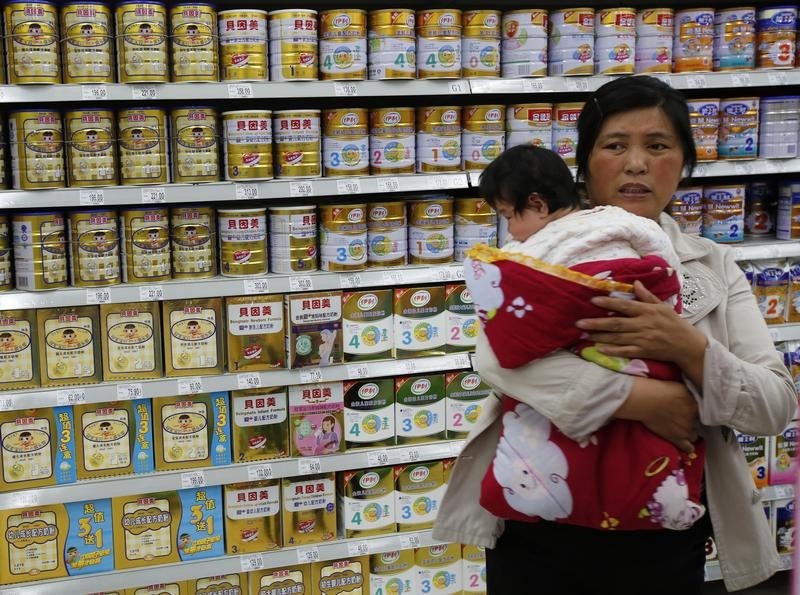(Adds statement from Australian infant formula firm Bellamy's)
SHANGHAI, April 14 (Reuters) - Infant milk formula imports to China through international websites will need official approval by 2018, the finance ministry said, in a reprieve for firms concerned the rules would take immediate effect and limit their ability to do business.
China raised tariffs on online retail imports last Friday, but also published a "positive list" which tightened restrictions on some products including milk powder being imported through cross-border websites.
The move sparked sharp falls in the share prices of food and dairy companies in close trade partners like Australia as investors scrambled to understand the impact. cross-border e-commerce market has lured in domestic shoppers with lower tax rates than conventional imports and less red tape. The country's infant milk formula market is estimated at 65.7 billion yuan ($10 billion) this year, according to Euromonitor, lead by overseas brands such as Nestle SA NESN.S and Mead Johnson Nutrition Co MJN.N .
The finance ministry said in a statement late on Wednesday that infant milk formula imported through online channels would "temporarily" not need to obtain registration documents. The new requirements would come into effect from Jan. 1, 2018.
Infant formula maker Bellamy's Australia Ltd BAL.AX said the clarification meant the firm could continue with normal operation in China.
"The guidance provided last night by the Ministry of Finance in China reconfirms that it's business as usual for Bellamy's in the e-commerce channel," CEO Laura McBain said in a statement.
The firm's shares were up nearly 6 percent on Thursday morning, having shed 10.8 percent on Tuesday amid confusion over China's imports policy.
Beijing's clarification came as Australian Prime Minister Malcolm Turnbull leads 1,000 business leaders on a visit to China this week. cross-border retail sales refers to goods either shipped directly to shoppers from overseas or from bonded warehouses in free-trade zones within China. The market is set to hit 432 billion yuan ($67 billion) this year, from 259 billion yuan in 2015, according to McKinsey & Co.
Cosmetics imported through the same channel would need to obtain a permit, the finance ministry statement said. China had already approved 136,000 cosmetics, covering the "vast majority" of international brands. ($1 = 6.4845 Chinese yuan renminbi)
